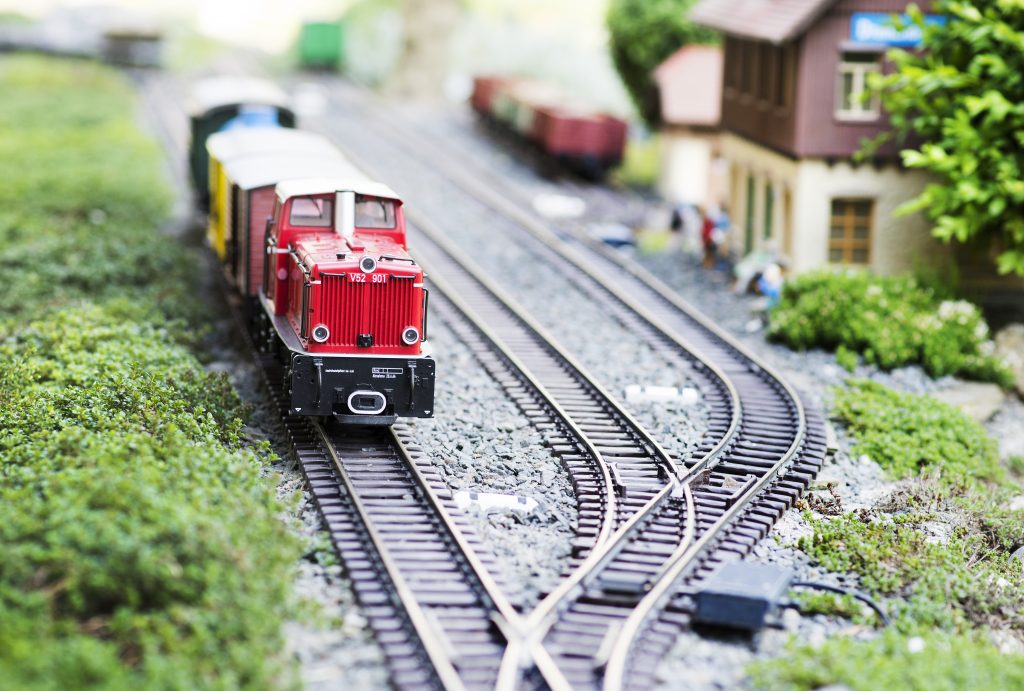
Model trains are a captivating hobby that blends craftsmanship, creativity, and engineering. But like any mechanical system, model train layouts are prone to wear and tear, connection issues, and alignment problems. Whether you’re working with HO Scale Trains, N Scale Trains, or expanding your layout with HO Scale Loads, having a well-maintained track system is key to ensuring smooth and realistic operations. In this blog, we dive into the most common model train track issues and how to troubleshoot them effectively.
1. Track Power Loss
Symptoms: Train suddenly stops, slows down, or runs erratically on certain parts of the track.
Causes:
- Dirty or oxidized rails
- Loose or corroded track joiners
- Poor wiring connections
Fix:
- Clean the track with isopropyl alcohol or a track cleaning rubber.
- Check joiners and ensure they’re tightly fitted. Replace if corroded.
- Inspect solder joints and power feeds. Use a multimeter to confirm current flow.
Pro Tip: Power your layout from multiple points to avoid voltage drops, especially on larger HO Scale layouts.
2. Derailments at Turnouts or Curves
Symptoms: Trains derail frequently at the same locations.
Causes:
- Misaligned or warped track
- Turnout switch not fully engaged
- Incompatible wheel profiles or back-to-back spacing
Fix:
- Use a track gauge to ensure proper spacing.
- Level the baseboard under curves and turnouts.
- Make sure all switch points are clean and pivot smoothly.
Accessory Note: Investing in quality turnouts and curved track pieces from eTrains’ selection of model railway accessories online ensures better reliability.
3. Poor Electrical Contact
Symptoms: Locomotives stutter, lights flicker, or movement is inconsistent.
Causes:
- Dust or oil build-up on rails or wheels
- Loose plug connections on DCC systems
- Damaged rail joiners
Fix:
- Clean wheels with a wheel-cleaning brush or tool.
- Re-seat DCC plugs or consider upgrading to hard-wired connections.
- Replace old joiners and ensure continuous conductivity.
Did You Know? eTrains offers a range of model railroad supplies online that help maintain system connectivity and performance.
4. Track Misalignment
Symptoms: Trains wobble or derail intermittently.
Causes:
- Warped baseboard
- Seasonal wood expansion
- Inconsistent ballast application
Fix:
- Shim or re-lay uneven track sections.
- Leave small expansion gaps when laying track.
- Use quality cork roadbed and flexible track for complex layouts.
Bonus Tip: For scenic consistency, use model railway retaining walls and scenic materials from eTrains to blend fixes naturally into your layout.
5. Track Noise or Vibration
Symptoms: Excessive noise, especially at high speeds.
Causes:
- Rigid mounting of track to baseboard
- Gaps between track sections
Fix:
- Use foam or cork underlay to dampen sound.
- Solder joints and use flexible track where possible.
Lighting Hack: Use model railway lighting to spot trouble areas during operation—a great way to visually inspect your track in action.
Final Thoughts
Track issues can be frustrating, but most are easy to fix with the right tools and know-how. Regular maintenance, using reliable model railway supplies online, and upgrading your layout with durable model railway accessories online from trusted sources like eTrains Australia will ensure a realistic and enjoyable railway experience.
From model railway retaining walls to lighting kits, eTrains is your one-stop shop for high-quality, dependable model train essentials. Don’t let minor track issues derail your fun—keep your railway running smoothly all year long!
